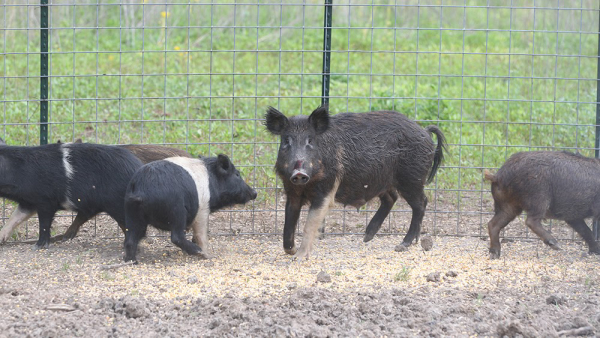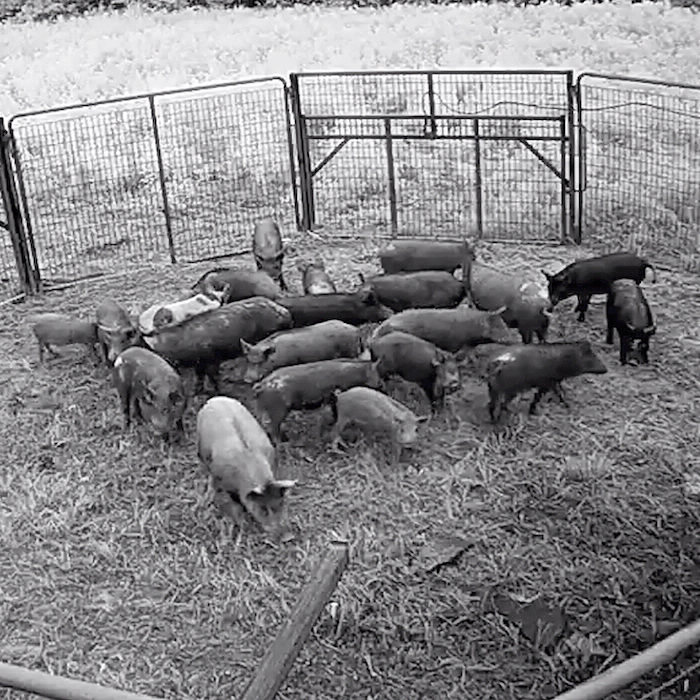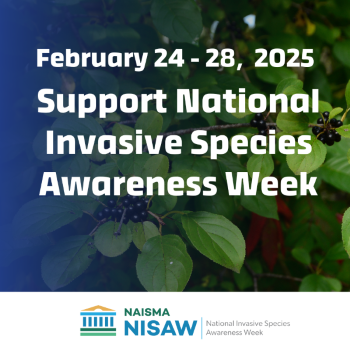Arkansas task force mapping feral hog removal through online survey

LITTLE ROCK — The Arkansas Feral Hog Eradication Task Force is unveiling a new tool to help coordinate the fight against invasive pests in The Natural State. A new mobile-friendly survey will enable any private landowner or hunter to upload information about feral hog sightings and removal efforts in Arkansas.
The Arkansas Feral Hog Control Survey, built on a mobile platform called ArcGIS Survey 123, is available for download at www.agriculture.arkansas.gov/arkansas-department-of-agriculture-services/feral-hog. It was developed by the Arkansas Game and Fish Commission to track the agency’s efforts in feral hog trapping during the last year. After successful field tests, biologists and staff within the task force modified the tool to provide a public interface to help track any feral hog removal efforts throughout the state.
Landowners who remove feral hogs on private property by trapping or shooting are asked to help the task force by uploading removal information on the Arkansas Feral Hog Control Survey.
Information uploaded to the survey will help the task force better understand how many feral hogs are being removed monthly by private individuals, state agencies, and federal agencies. This will guide future management decisions to continue the fight against feral hogs in Arkansas.
Feral hogs are not native to the United States. They are an invasive species that poses significant risks to human and livestock health. In Arkansas, feral hogs cause an estimated $19 million in damages to agriculture and natural resources. They compete for food resources, destroy habitat by rooting and wallowing and will eat ground-nesting birds, eggs, fawns and young domestic livestock. They also carry up to 45 bacteria, diseases and parasites, including Trichinellosis, Brucellosis and swine herpes virus.
In Arkansas feral hogs may be killed or trapped day or night by any means year-round on private property by a landowner or anyone who has the landowner’s permission. A license is not required to kill feral hogs, but anyone who has had their license revoked may not hunt them. On public land feral hogs may not be taken on many wildlife management areas and National Wildlife Refuges. There are a few WMAs where feral hogs may be taken opportunistically, but only during open firearms deer, bear or elk seasons or with archery tackle from Nov. 1-Dec. 31.
The AGFC conducts extensive trapping efforts on public and private lands and encourages the use of large-scale trapping efforts as opposed to hunting or shooting single animals as it educates the pigs remaining in the group and scatters them to new properties. Anyone convicted of releasing hogs in Arkansas in an attempt to stock them for recreational purposes faces fines ranging from $1,000 to $5,000 per hog or imprisonment not exceeding 30 days, or both Possession or release of live feral hogs on an AGFC-managed WMA is a Class 4 offense, which carries a fine of $750 to $7,500 and a jail sentence of up to 180 days upon conviction.
Visit www.agriculture.arkansas.gov/arkansas-department-of-agriculture-services/feral-hog for more information about the Feral Hog Eradication Task Force and tools to help control feral hogs in Arkansas.






